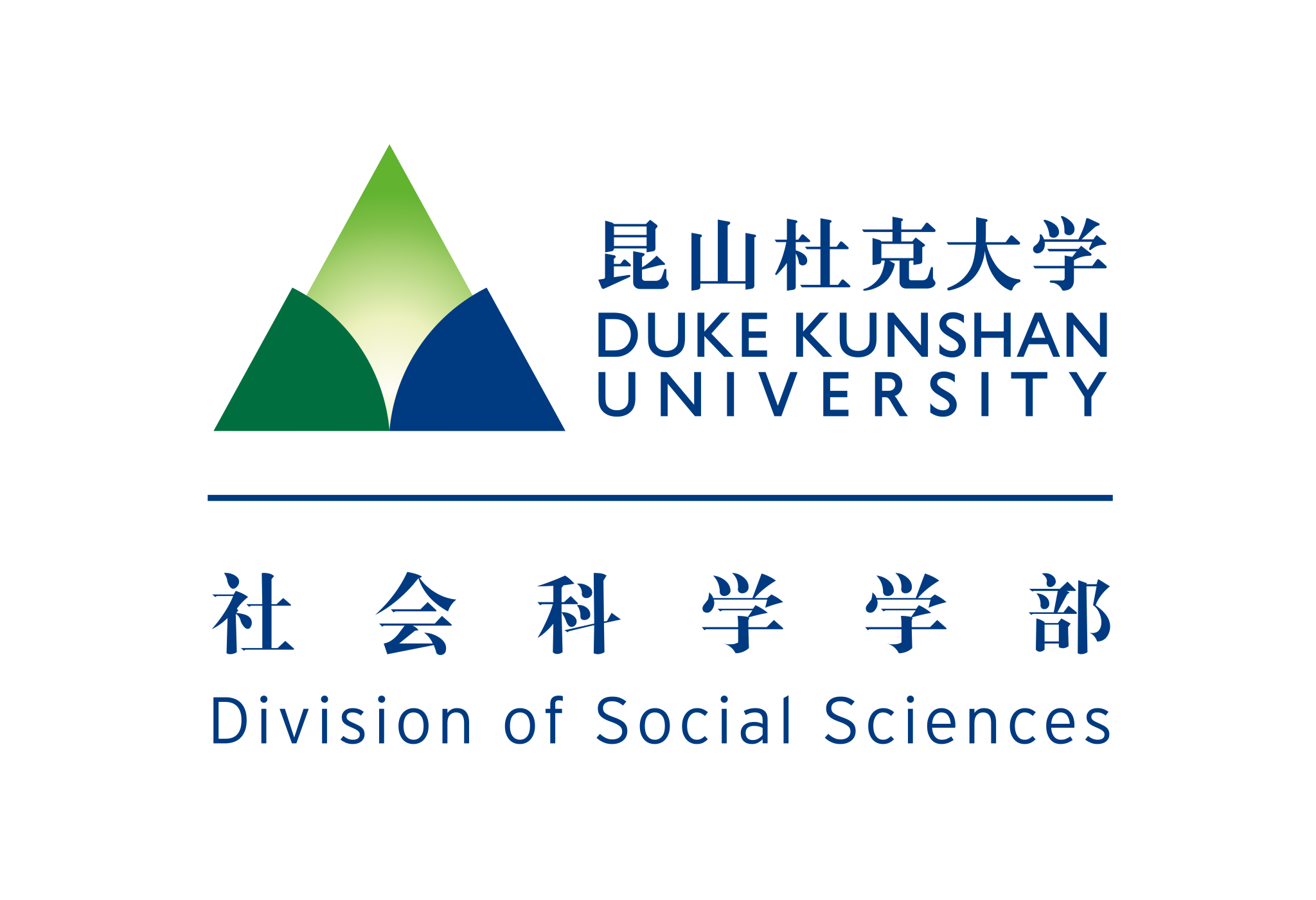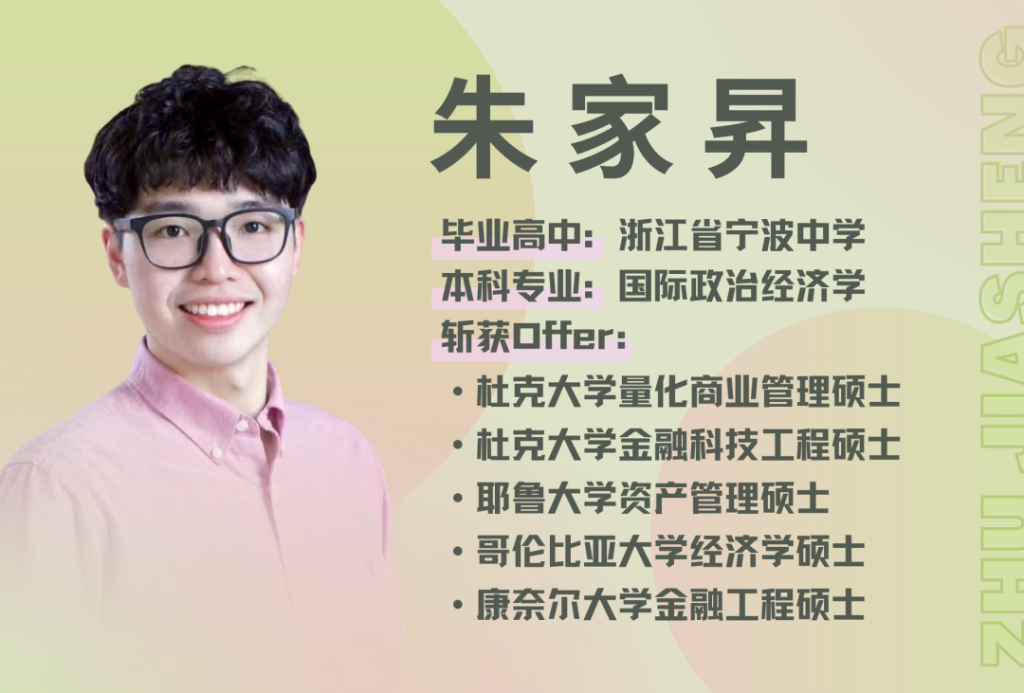
1 Why Choose Economics As My Major?
When first entered DKU, I had not yet decided what major to study. I was simply interested in science and was attracted by the rigorous logic and concise and beautiful symbolic expressions. Thanks to DKU’s liberal arts education, I was able to absorb a large amount of knowledge while exploring and digging into my deeper interests.
In my freshman and sophomore years, I tried courses in various disciplines, including basic sciences (such as Physics, Chemistry, and Biology), Environmental Science, Computer science, Neuroscience, Anthropology, Sociology, History, etc., and finally found my greatest interest – Economics.
Economics stands at the crossroads of the “science” and “liberal arts”. It is based on a mathematical framework, focuses on quantitative thinking and analytical skills, emphasizes dialectical thinking and rigorous argumentation, requires a large amount of reading and knowledge absorption, and needs to keep up with current affairs and use the sword of economics with a developmental perspective and an empirical attitude.
Economics is to human society as physics is to nature. We use economics to analyze consumer behavior, corporate games, government decisions, etc., just like astrophysics explains how the sun, moon, and stars get along. I hope that through the understanding and research of economics, I can truly understand how society works and create long-term value for society. To borrow a sentence from the wall of the school’s academic building: “Use knowledge to serve society.”
02 Significant Research Experience
I have a relatively rich academic and research experience during my undergraduate studies. I have participated in several research projects in different schools, and I am particularly grateful for the guidance of all my teachers.
My academic advisor, Professor Zhang Luyao, and I have jointly built a behavioral economics laboratory platform and carried out multiple interdisciplinary research projects around topics such as behavioral economics, blockchain, digital assets, investment, and economics education. Among them, the project that I am most interested in is to analyze whether digital asset investment can be delegated to artificial intelligence operations (Delegate AI or Not: Investment in Digital Assets Market).
In this research project, I fully studied different types of digital assets, the characteristics of AI investment, and the current status of AI in digital asset investment. Under the guidance of Professor Lu Yao, I designed a behavioral economics experiment to better compare and observe the advantages and disadvantages of AI investment and human investment.
In the economics education research in collaboration with Professor Lu Yao and Professor Sarah of Williams College, I further used quantitative analysis methods to discuss the relationship between active learning methods and indicators such as the effectiveness and enjoyment of learning goals using academic research methods, providing in-depth reference and insights for course designers. Our co-authored papers have been accepted by two international conferences.
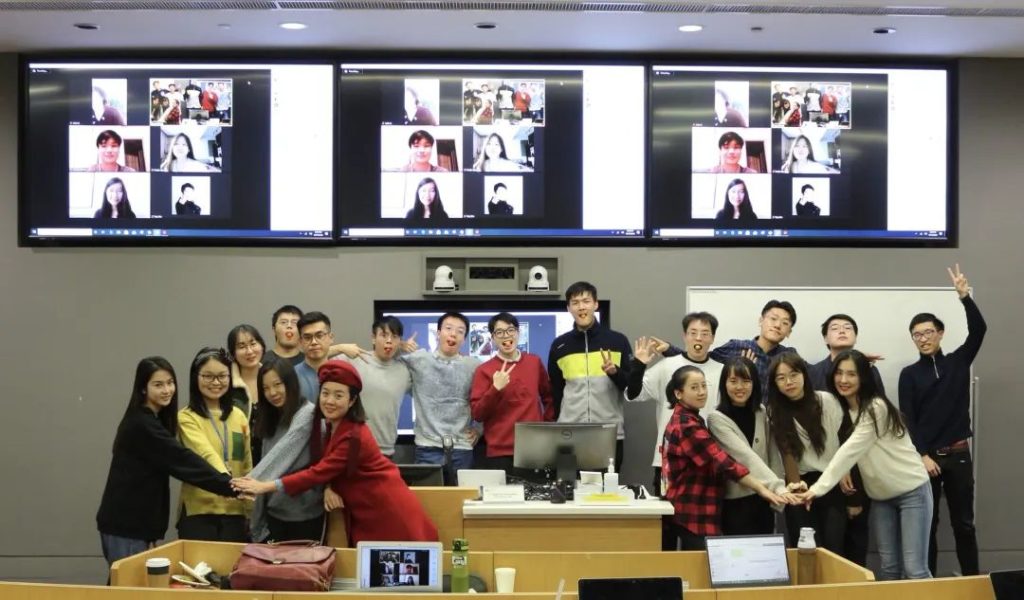
Photo with My Advisor Professor Zhang Luyao
My PATHWAY TO SUCCESS mentor Professor Cui Jingbo also gave me a lot of academic guidance, leading me to consolidate the most basic but also important research skills such as computer programming, data analysis, and literature reading, and guided me to find the right graduate direction.
At DKU, research projects themselves are an important part of the classroom. I have participated in small research projects in different fields in Professor Zhang Xiaochen’s POLECON 490, Professor Peter Sattler’s ECON 303, Professor Zeng Zhaojin’s POLECON 302, and Professor Joseph Mazor’s ETHLDR 202. I have seen all kinds of scenery and felt different beauty. The professors also provided me with a lot of guidance on the planning and project selection of further studies, which has a profound impact on my personal long-term and short-term development. I am very grateful.
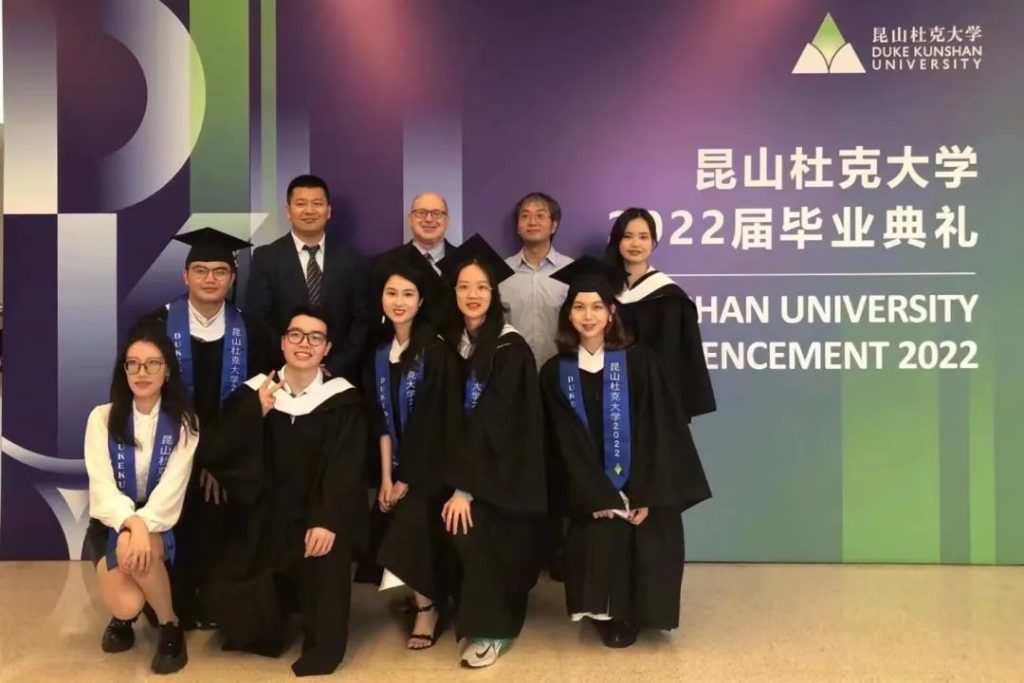
Group photo with economics professors and classmates at the graduation ceremony
03 Colorful Leadership Experience
I am very proud of being the first undergraduate, because everything we do is making history. The clubs we founded, the activities we initiated, and the logos we designed may all become valuable heritage and traditions.
In 2019 and 2020, I formed a welcome team with more than 30 classmates, planned and organized a half-month opening ceremony and a series of welcome week activities, and welcomed new students from more than 50 countries. The photo of me touring the campus with the first 2023 classmate who arrived at the school is still being played on the school’s official website. What’s more, when I went to study at Duke, this American junior happened to be my neighbor. I had a surprise reunion with him and his parents on the second day of school.
I have also participated in the planning and organization of more than 20 campus activities of various types, including Sports Party, Chinese Poetry Competition, Chinese Medicine Tour, “Data+” Research Sharing Conference, DKU TALK Speech Conference, etc., and contributed many WeChat articles to the Student Affairs Office and the Media Center. But what impressed me most was that I was able to participate in the process of creating “tradition” as a member of the graduation ceremony committee to the best of my ability. When I tried on the first undergraduate graduation academic gown in the history of DKU, my eyes were warm: it was a historic moment!
I am particularly grateful to the school for awarding me the 2022 Annual Wisdom Leadership Award. Wisdom leadership is one of the seven core principles of talent training in the school, and this award is set up to commend students who can embody the spirit of each principle in their words and deeds. The winners are jointly nominated by teachers and students. This is a valuable recognition of my efforts during my time at school, and it is also a spur for my future. It inspires me to flexibly apply what I have learned to unite people around me, seek common ground while reserving differences, resolve differences, and achieve sustainable positive innovation when facing more complex problems.
04 Memorable Cross-cultural Experience
There is a big tree, which sprouts new buds facing the sun, and has a well-developed root system deep underground. The one that sprouts new buds is DKU: the first batch of undergraduates has just graduated; the quaint one is Duke University, which has a history of nearly 200 years, with intricate roots and connections in all directions. If DKU is more like a college, it is exquisite, innovative, modern, and has high-concentration and in-depth exchanges with professors and students; Duke University is a university, which is broad, inclusive, has a sense of history, and looks up to the height of mankind, just a drop in the ocean. The combination of the two is the Duke system’s innovation and inheritance, standing on the shoulders of giants to move towards a larger world stage.
During the semester at Duke University, I not only took more diverse courses that suited my personal interests, but also met old friends who had not seen each other for two years and experienced the culture of another country. What impressed me the most was the enthusiasm of the teachers and students of the main campus of North Carolina towards DKU students. I still remember what the American guy I just met said to me during the first class: “We are all part of Duke!” Combining the context of our conversation and his demeanor, I think his words translated into Chinese means: “We are with you.”
05 Why DKU?
I chose DKU for two reasons. One is because I believe in the quality of Duke’s education. The second is because I yearn to be a pioneer and have a sense of mission. The most important thing I learned at DKU is to think from multiple perspectives and not to easily draw conclusions or definitions. Many contradictions in cross-cultural and cross-disciplinary situations are not really contradictions, but are caused by different perspectives, just like a blind man touching an elephant, both right and wrong. Thinking from multiple perspectives, thinking from other people’s perspectives, empathy, and active communication are all magic weapons to get out of trouble. The academic atmosphere of DKU is very strong. While there are many hidden talents, everyone is very hardworking and “crazy” to run out of the comfort zone.
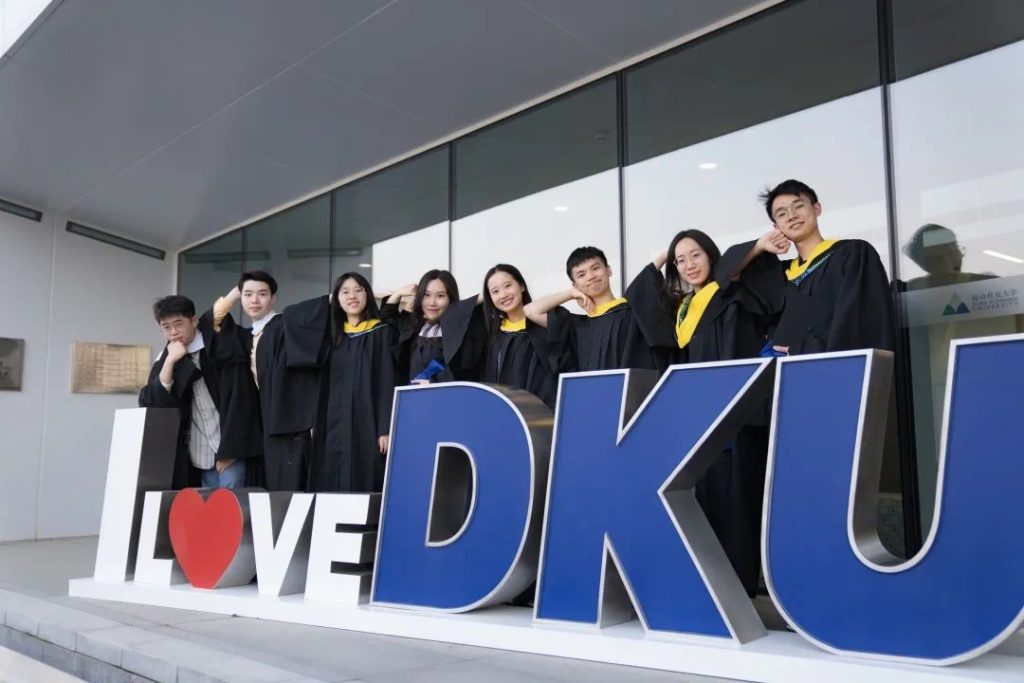
Photo: Man Junkai From class of 2023
06 Plans After Graduation
I plan to study in Yale University’s asset management master’s program, learn from the best professors and experts in the field, further improve my professional ability, meet the best like-minded people in the world, and create long-term value with advanced investment concepts and more solid investment skills.
One of the founders of my graduate program, Mr. David Swensen, is the former head of the famous Yale University Foundation, an investment expert who is as famous as Buffett. After David took over the Yale University Foundation, the Yale University Foundation became one of the best institutional investors in the world in the long term: the size of the fund increased from US$1.3 billion in 1985 to US$29.4 billion in 2018, a full 22 times increase, and the average annualized return in the past 20 years exceeded 12%. The Yale Foundation is therefore known as the “most successful university endowment fund in the world”, and the “Yale model” created by David is therefore highly respected and enduring.
I deeply admire the achievements of David and the Yale University Foundation, and I also hope to broaden my horizons, settle myself, break through myself, and open up more possibilities for myself on such an excellent platform.
07 Suggestions To Fellow Students
Discovering value is an eternal proposition in all walks of life, and everyone should pursue their own value. If the educational value of DKU has been verified with the graduation of the first undergraduate class, then I would like to warmly invite you to join in and discover your long-term value.
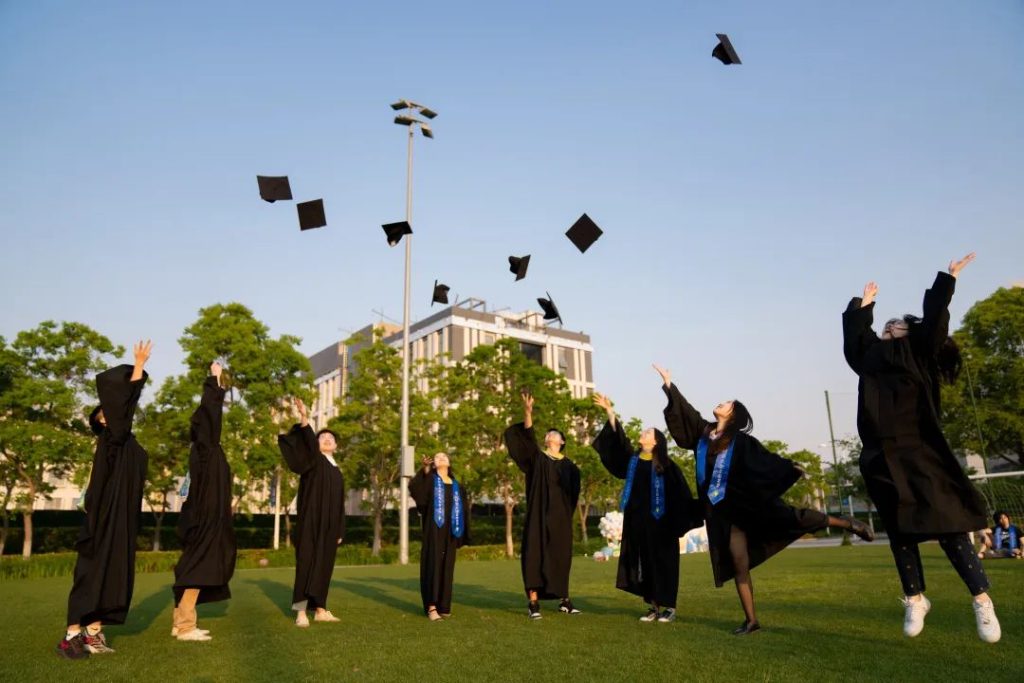
Translated and Edited by Zhenyu Tian, Class of 2027
